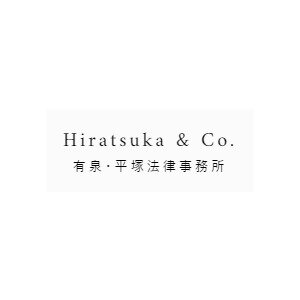Best Debt Capital Markets Lawyers in Japan
Share your needs with us, get contacted by law firms.
Free. Takes 2 min.
Or refine your search by selecting a city:
List of the best lawyers in Japan
About Debt Capital Markets Law in Japan
Debt Capital Markets (DCM) in Japan refers to the regulatory and transactional framework through which entities such as corporations, financial institutions, and government agencies raise capital by issuing debt securities. These securities include bonds, notes, and commercial paper, which are then sold to investors. DCM supports corporate finance, public sector funding, and overall economic stability. The legal landscape governing DCM in Japan is sophisticated, built to ensure transparency, investor protection, and market efficiency, and is overseen by various regulatory authorities, including the Financial Services Agency (FSA).
Why You May Need a Lawyer
Engaging in Japan’s Debt Capital Markets involves complex regulations, documentation, and compliance requirements. A lawyer with DCM experience can provide critical guidance in many scenarios, including:
- Assisting with drafting and reviewing debt securities issuance documents
- Navigating registration and disclosure requirements under Japanese law
- Advising on structuring and negotiating terms for bond offerings
- Ensuring compliance with ongoing disclosure and reporting obligations
- Guiding foreign issuers through local market entry and regulatory nuances
- Handling disputes or enforcement actions concerning securities regulations
- Advising on tax implications associated with DCM transactions
- Supporting mergers, acquisitions, or restructurings involving debt securities
Seeking timely legal advice helps avoid regulatory pitfalls, manage risks, and secure favorable transaction outcomes.
Local Laws Overview
Several core local laws shape the Japanese Debt Capital Markets. The Financial Instruments and Exchange Act (FIEA) is the cornerstone, governing the issuance, disclosure, and trading of securities. Key aspects relevant to DCM include:
- Registration and disclosure: Issuers must provide comprehensive information to investors through registration statements and ongoing reporting
- Regulatory supervision: The Financial Services Agency (FSA) oversees compliance and enforces conduct standards
- Investor protection: Strict rules against misleading statements, insider trading, and market manipulation exist to safeguard the market’s integrity
- Cross-border issues: Foreign issuers and underwriters must navigate extra steps, including possible translation of documents and additional filings
- Corporate governance: Public issuers face governance and internal control requirements under local corporate laws
- Taxation: Withholding tax and other fiscal measures may affect interest payments to domestic and international investors
These regulations are supported by stock exchange rules, Bank of Japan policies, and guidelines from other financial authorities for practices like listing, clearing, and settlement.
Frequently Asked Questions
What are the main types of debt securities issued in Japan’s Debt Capital Markets?
The common types include corporate bonds, government bonds (Japanese Government Bonds or JGBs), municipal bonds, commercial paper, and securitized products.
Who regulates the Debt Capital Markets in Japan?
The Financial Services Agency (FSA) is the primary regulatory body, supplemented by self-regulatory organizations and local stock exchanges such as the Tokyo Stock Exchange.
Are there special rules for foreign issuers in Japan?
Yes, foreign issuers face additional requirements such as document translation, extra disclosures, and sometimes the appointment of a local agent to interact with regulators.
What is the Financial Instruments and Exchange Act (FIEA)?
The FIEA is Japan’s principal securities law, regulating the issuance, disclosure, and trading of financial instruments including debt securities.
Is it necessary to register every debt offering with Japanese authorities?
Most offerings targeting Japanese investors do require registration and disclosure, but there are certain private placement exemptions and short-term instruments like commercial paper may have lighter requirements.
How are investors protected in Japan’s Debt Capital Markets?
Regulations require transparency in disclosures, prohibit fraud and insider trading, and establish mechanisms for dispute resolution and compensation in case of misconduct.
Can Japanese companies issue debt securities in foreign currencies?
Yes, Japanese issuers can offer bonds denominated in foreign currencies, known as samurai bonds (yen-denominated by foreign issuers) and eurobonds, subject to applicable regulations.
What are the disclosure requirements for a bond issue in Japan?
Issuers must file registration statements detailing their business, financials, risk factors, and the terms of the offering, along with ongoing updates for material changes.
Are there withholding taxes on interest paid on Japanese debt securities?
Yes, both domestic and foreign investors may be subject to withholding tax on interest income, though tax treaties and specific exemptions can sometimes reduce the tax burden.
What are the consequences of non-compliance with DCM regulations in Japan?
Penalties can include administrative sanctions, financial penalties, suspension of activities, loss of licenses, and in some cases, criminal prosecution.
Additional Resources
For those seeking more information or guidance on Debt Capital Markets in Japan, the following organizations and resources are recommended:
- Financial Services Agency (FSA) - Japan’s main financial regulator
- Japan Securities Dealers Association (JSDA) - Self-regulatory body for securities companies
- Tokyo Stock Exchange (TSE) - Listing requirements and market information
- Bank of Japan (BOJ) - Policy announcements and statistics impacting bond markets
- Local or international law firms with securities law expertise
Additionally, government websites often publish guidelines, compliance checklists, and regulatory updates that can be helpful for both issuers and investors.
Next Steps
If you need legal assistance relating to Debt Capital Markets in Japan, consider the following steps:
- Gather all relevant documents, such as business information, existing securities, and previous filings
- List any urgent deadlines or compliance concerns
- Search for law firms or specialists with proven DCM experience in Japan
- Prepare questions regarding your specific goals or challenges, such as structuring a bond issue or responding to a regulator
- Arrange a consultation to discuss your case and receive an initial assessment
Investing time in professional legal advice at the outset can help you navigate Japan’s Debt Capital Markets with confidence and ensure compliance with all local laws and regulations.
Lawzana helps you find the best lawyers and law firms in Japan through a curated and pre-screened list of qualified legal professionals. Our platform offers rankings and detailed profiles of attorneys and law firms, allowing you to compare based on practice areas, including Debt Capital Markets, experience, and client feedback.
Each profile includes a description of the firm's areas of practice, client reviews, team members and partners, year of establishment, spoken languages, office locations, contact information, social media presence, and any published articles or resources. Most firms on our platform speak English and are experienced in both local and international legal matters.
Get a quote from top-rated law firms in Japan — quickly, securely, and without unnecessary hassle.
Disclaimer:
The information provided on this page is for general informational purposes only and does not constitute legal advice. While we strive to ensure the accuracy and relevance of the content, legal information may change over time, and interpretations of the law can vary. You should always consult with a qualified legal professional for advice specific to your situation.
We disclaim all liability for actions taken or not taken based on the content of this page. If you believe any information is incorrect or outdated, please contact us, and we will review and update it where appropriate.
Browse debt capital markets law firms by city in Japan
Refine your search by selecting a city.
















